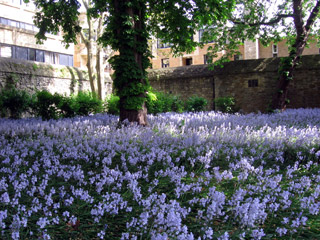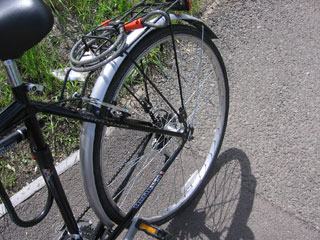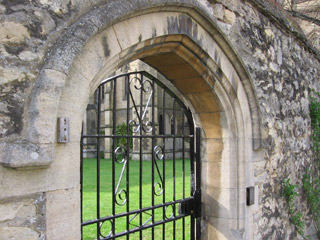
While it may seem premature for someone with a year left in a master’s program, I have been thinking a lot lately about what is to follow Oxford. There seem to be two major possibilities, each with numerous sub-options. The first is to proceed directly into a doctoral program, provided I can get accepted. The second is to work.
Keep studying
The possibility of doing a D.Phil at Oxford is not one that appeals to me. While they are shorter than degrees in the United States – probably three years compared to five or six – they don’t include the near-automatic funding that is part of PhD programs at good American schools. Another consideration is the relatively small amount of teaching experience that is usually part of a D.Phil. Applying to work in an academic context, which is one of several possibilities I am considering, would almost certainly require such experience, in the form of a PhD or post-doc. A final consideration that I will mention here is the weak integration between the Department of Politics and International Relations at Oxford and organizations like the Environment Centre.
For a number of reasons, my top choice for a PhD program at the moment is Columbia. The idea of living in New York is appealing, especially if it would be for such a long period of time, and everyone I’ve spoken to says that Columbia has a good integration between policy and science departments. Naturally, I would need to investigate much more and choose a specific program before applying. Other appealing schools in the United States include MIT, Stanford, and Harvard. Again, I would need to do a lot more investigation before choosing a specific school or program.
The appeal of the PhD option is partly in familiarity. I’ve been in school for twenty consecutive years now, if you count French pre-school. Also, I am concerned that if I go off and do something else, I won’t be able to muster the will to return to academic study.
Work
Work is a much more uncertain prospect. I’ve had a huge number of jobs in my life, all of them fairly menial, I’ve been a janitor, worked in a juice bar, worked as a cashier, sold computers, photocopied and faxed documents for a law firm, worked in a bird sanctuary and for two summer camps, delivered newspapers, conducted telemarketing for a number of charities, done research, soldered components onto circuit boards, assembled and configured computers for an office, sold alcoholic drinks, and served as the subject of scientific experiments. Last summer, I applied unsuccessfully to work at Starbucks. Through all that, I’ve never had a ‘real’ job. By that, I mean a job that I didn’t have the intention of quitting at some pre-specified point in the future. Also, a job with any kind of prospect for advancement.
Fields of interest to me are governmental, quasi-governmental, and journalistic. Examples of each would be working for Environment Canada, the United Nations Environment Program, and The Economist, respectively. I have my doubts about how well I would do in a very bureaucratic context. During the more stressful and frustrating times at Oxford, journalism has seemed an incredibly interesting option. It would allow – indeed require – writing and traveling, and it would probably offer a substantially different perspective on things.
The appeal of the work option is that it would let me try something other than school. It would probably allow me to start paying down whatever level of debt I ultimately take on from Oxford. Also, it would give me a bit more balance and make me feel more equally experienced with the many people in this program who have worked for banks, the UN, or some such place.
Conclusions
I’ve told many people so far about my eight year plan for things I mean to do before I am thirty. The key planks are to finish school, travel to almost everywhere, and write a book. Naturally, there is some tension between the three. Doing a PhD in the right way could allow for all three things to be done. Likewise, leaving formal education at an M.Phil and starting to work for an organization that involves a great deal of travel. All this should be kept at least in the back of my mind over the next year, so I’m not simply left in Vancouver in the summer of 2007, with no plan for what is to follow.




